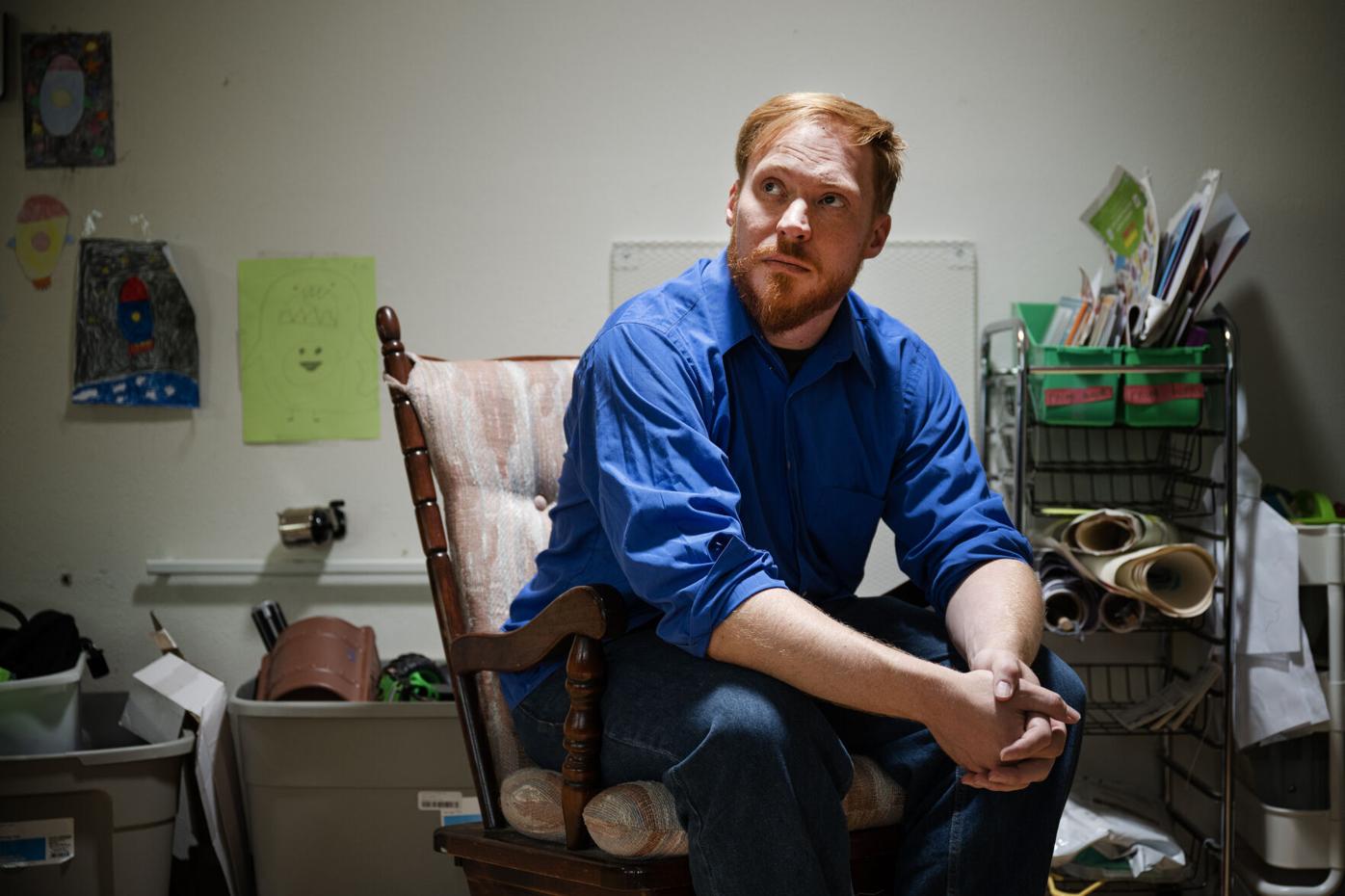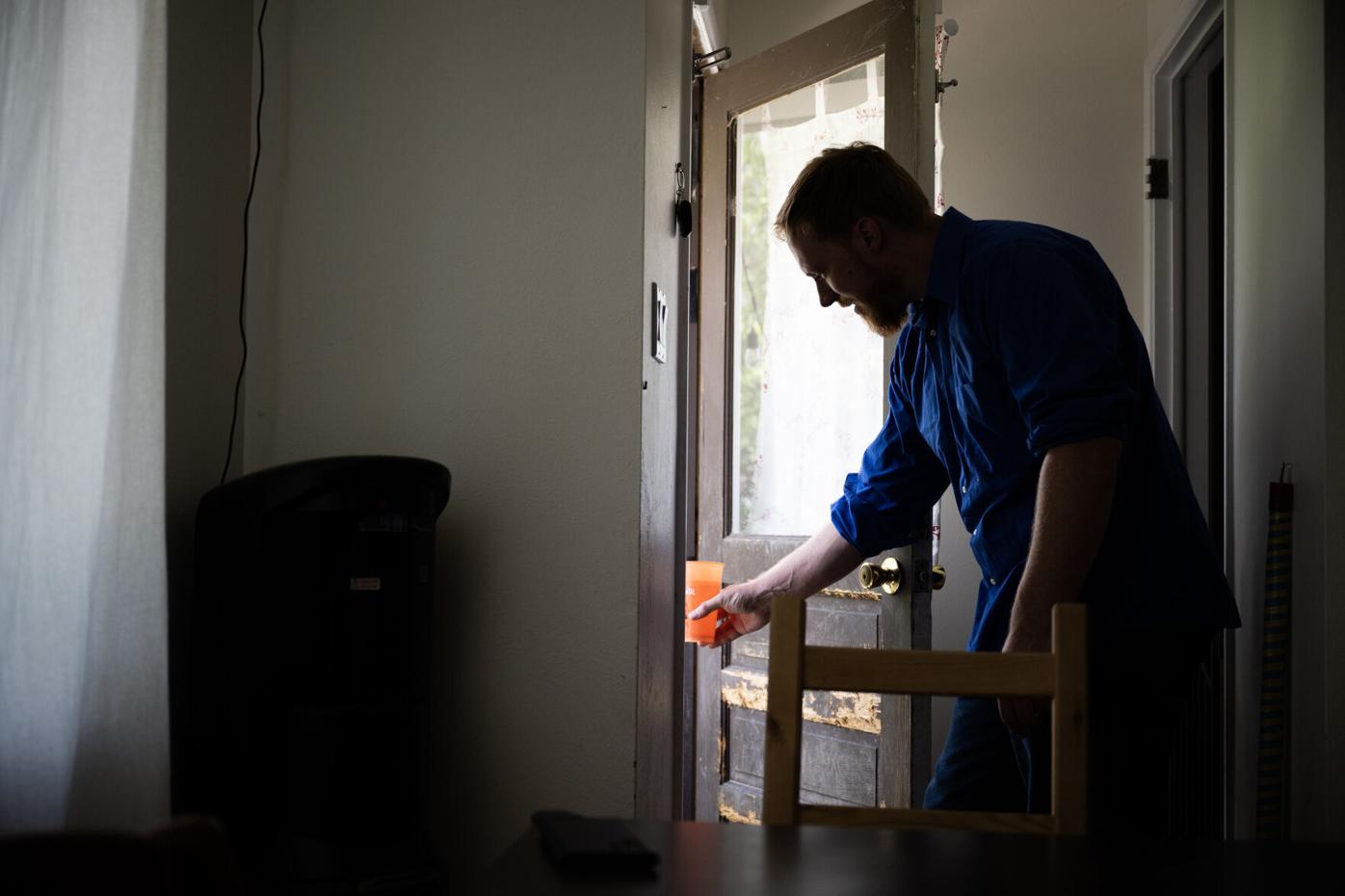Colorado parental evaluator accused of falsifying credentials sent child custody cases into turmoil — despite key warning
A court-appointed psychologist who fixated on whether the nickname “Sleepy Melo” meant a father was a gang member unfit to parent his children turned in a child custody recommendation so flawed that a magistrate barred the psychologist in November from ever working again for his judicial district covering six counties in northeast Colorado.
The father in that case struggled for about five months to get his two sons and daughter — then ages 12, 9 and 10 — returned to his home in Sterling after the psychologist warned he posed an imminent, violent threat. Based on the psychologist’s warning, the mother was allowed to move the children to live with her in California, even though she had abandoned them for four years, was now living with a felon and had been involved with her family in California in a recent violent hostage situation.
When the father, Steve Ramirez, finally had his day in court, he persuaded the magistrate to order the children returned to his care in Colorado. The magistrate found the psychologist, Shannon McShane, had improperly impugned a loving, caring and protective father through an investigation the magistrate described as “lopsided” and marred by bias, innuendo and false statements.

This resume from Shannon McShane was submitted to participants in a custody dispute in Arapahoe County. McShane surrendered her license to practice psychology in Colorado last year after accusations she did not get a doctoral degree from the University of Hertfordshire in England. State court officials barred her in March of last year from eligibility rosters to make child custody recommendations in court cases.
courtesy of court participant

This resume from Shannon McShane was submitted to participants in a custody dispute in Arapahoe County. McShane surrendered her license to practice psychology in Colorado last year after accusations she did not get a doctoral degree from the University of Hertfordshire in England. State court officials barred her in March of last year from eligibility rosters to make child custody recommendations in court cases.
The magistrate then reported McShane on Nov. 18 to the Colorado State Court Administrator’s Office for violating professional court practice standards.
Instead of taking prompt action, state court administrative officials allowed McShane to continue making disputed court-appointed child custody recommendations in up to 20 cases in other Colorado judicial districts for four more months before finally barring her from doing such work.
McShane is just the latest parenting evaluator to stir controversy, as critics contend state court officials and licensing regulators have moved slowly to address bias and shoddy work in the industry, an ongoing investigative series by The Gazette has found. Criticism grew so pronounced that state lawmakers two years ago passed legislation requiring new domestic-violence training for parenting evaluators, whose custody recommendations can hold tremendous influence with judges, while costing parents tens of thousands of dollars, per case.
While state judicial officials delayed taking action against McShane, she continued causing controversy, including saying another father was worse than murderers she claimed to have counseled. In that case, she pushed to reverse restrictions on an Aurora mother’s parenting time a judge had imposed after ruling the mother could only see the children while supervised.
The judge had found the supervision necessary, because the mother had bitten her 3-year-old son’s hand, dislocated his shoulder, punched her 6-year-old son, and threatened her ex-husband with a meat cleaver, records show. The judge also noted in his ruling that a doorbell video caught the mother punching her ex-husband and hurling large rocks at him when he had done nothing to provoke such an attack.
The state court administrator’s office did not remove McShane from the statewide eligibility rosters for parenting evaluators and child and family investigators until March 21. And officials in that office, who declined requests for comment, only acted after receiving a new complaint from a lawyer in an Arapahoe County custody case alleging that McShane had falsified her credentials, exhibited extreme bias, impersonated state regulators — as well as U.S. embassy employees in Tanzania — and submitted perjurious documents to the court.
4 recent murders: Colorado’s troubled family court system ignores children in peril
On July 20, McShane surrendered her state licenses required to work in Colorado as a psychologist and an addiction counselor. She worked as a psychologist candidate at the Colorado Department of Corrections from January 2018 to February 2021, with a final annual salary there of $84,468. She also worked as a psychologist at the state hospital in Pueblo for the criminally insane from January 2018 to June 2023, with a final annual salary there of $97,224.
Records show officials at the Colorado Department of Regulatory Agencies began investigating McShane for complaints they received on Feb. 1 and March 31 from separate parents who encountered McShane during her custody evaluations. The licensing boards for those professions suspended her licenses on June 9.
The licensing suspension notice states that an investigation found that McShane had submitted “fraudulent documents” to obtain her state licenses, had omitted information regarding past professional discipline from her application to become licensed, and had engaged in substandard care and practiced outside the scope of her training or expertise.
One parent alleged to the regulators that McShane appeared to have faked receiving a doctoral degree from the University of Hertfordshire in England and was telling people that “she has a license to lie.” Colorado law requires a doctorate to practice psychology in Colorado.
The second parent alleged to the regulators that McShane had provided a deficient parenting evaluation in that parent’s custody case.

Chad Kullhem hangs some of his children’s artwork on the refrigerator at his home in the Denver metropolitan area last week.
Timothy Hurst, The Gazette

Chad Kullhem hangs some of his children’s artwork on the refrigerator at his home in the Denver metropolitan area last week.
McShane, in an email to The Gazette, claimed she attended the university under a “former legal name” and was “unwilling to disclose that in order to protect people.”
“I negotiated with DORA as was my right, to bring this to a close,” she said.
In addition, authorities in Texas in 2018 revoked McShane’s real estate license and fined her $42,000 for pocketing rental money from properties she was managing instead of forwarding the rent on to property owners. She said the Texas real estate license revocation occurred because state officials there had not alerted her that she was under investigation, and she did not have a chance to respond.
McShane in her email defended her court-appointed work and said the custody evaluation process “is an adversarial one, and there are winners and losers. People seem to forget that aspect.”
In recent years, parenting evaluators in Colorado have faced sanctions for everything from failing to disclose conflicts of interest to questioning whether a woman was an unfit mother because she might have complained to co-workers about the penis size of her husband she was divorcing.
Five months ago, a lawsuit seeking class-action status for up to 60 parents alleged Mark Kilmer, another Boulder parenting evaluator appointed by his own estimate to about 650 custody cases, favored abusive parents. Kilmer continued doing court-appointed parenting evaluations even after the state court administrator’s office barred him from accepting new court appointments, records show.
Parents say state judicial officials never told them or the judges overseeing custody cases that they had stricken Kilmer from statewide eligibility rosters for court appointments, allowing him to continue working on custody cases judges already had appointed him to evaluate.
Kilmer, who pleaded guilty to a domestic assault charge and a misdemeanor domestic assault charge in 2007, was removed from the statewide rosters in February after he publicly stated he disbelieves 90% of the allegations of abuse he hears while doing parenting evaluations.
Colorado custody evaluator suspended amid criticism of evaluation industry
McShane has sold her house in Monument and appears to have moved to Texas, where she obtained a psychology license on March 17. In an email to the listserv for Colorado parental evaluators, McShane said she plans to continue making court-appointed custody recommendations in Texas.
While Colorado regulators and the state judicial system in Colorado moved slowly despite the sanction and report from 13th Judicial District Magistrate Matt Bradley, a father in Aurora struggled to get McShane kicked off his divorce case in Arapahoe County District Court. Records show McShane claimed in emails and in statements that Chad Kullhem was an unfit father who was worse than a murderer whom she said she treated who put his enemies through a woodchipper.

Chad Kullhem sits in front of some of his children’s art supplies.
the Gazette file

Chad Kullhem sits in front of some of his children’s art supplies.
Olivia Larson, the lawyer representing Kullhem, said nobody ever told her or her client that a magistrate elsewhere had barred McShane from making custody recommendations in another judicial district.
“It would have been nice to know,” Larson said, adding that families in about 20 custody cases that McShane had been working on now will have to pay for new court-appointed parenting evaluators, who often charge parents more than $15,000 per case.
“Families are having to start the whole process over again, which is really a devastating thing,” Larson said. “There is a lot of trauma, and I think it’s because many of the parents do lose a lot of faith in the system. One parent said to me they feel like they’re on a treadmill and just can’t get off.”
McShane said in one email to the lawyers on Kullhem’s case that, despite the mother having a history of violence, it was the father who gave her the “willies” more than the murderers, predators and violent sex offenders she claimed she had counseled while working for the state Corrections Department. She added that “she could not get away from the father fast enough.”
The father only succeeded in getting McShane removed from his case after the lawyers in his custody case jointly filed a motion to do so because of alleged fraud and alleged falsification of her credentials. His ex-wife did not return messages seeking comment.

Chad Kullhem hands one of his children a cup of water as they play outside at his home.
Timothy Hurst, The Gazette

Chad Kullhem hands one of his children a cup of water as they play outside at his home.
“It really, truly feels like nobody wanted to believe or cared,” Kullhem said of his struggles to get state regulators and court administration officials to take seriously his allegations that McShane was a dangerous con artist, unfit to recommend who should and should not parent a child.
“I felt so incredibly devastated. She was saying things like, ‘I’m a protected court official,’ and things like that. All you can do is imagine you’re screwed, and that it’s over, and you feel like it’s for no reason.”
Kullhem said that while McShane was interviewing him for her parental evaluation, she told him she usually asks for “much more money” than the court had ordered him to pay her. He believes she was fishing to see if he would pay her more than the $7,500 amount the judge already had set as the amount he was supposed to pay.
“I was like, ‘Oh yeah,’ and then there was awkward silence,” he recalled, pointing out that payments beyond what a judge has ordered aren’t allowed. McShane, in an interview, denied ever telling a parent she usually charges more than the amount set by a judge. She also denied ever receiving additional payments from parents beyond what a court had ordered.
McShane still has not repaid the $7,500 Kullhem paid for her parenting evaluation in his case, despite a judge on May 11 ordering her to repay the money and ordering that the lawyers not use her report in the custody case.
Colorado child custody cases roiled by CSU professor’s controversial ‘alienation’ theory
Kullhem said that after he filed his anonymous complaint with state regulators, McShane reached out to him pretending to be an investigator with the Colorado Department of Regulatory Agencies to identify him and to try to persuade him to drop his complaint. Then she filed a status report with the judge overseeing his custody dispute, alleging he had targeted her for retaliation because of displeasure over her parenting evaluation.

Chad Kullhem hangs some of his children’s artwork on the refrigerator at his home in Denver.
the gazette file

Chad Kullhem hangs some of his children’s artwork on the refrigerator at his home in Denver.
McShane submitted to state regulators purported transcripts from the University of Hertfordshire in England, but university officials later confirmed she had not graduated from there and pointed out that the letter grades on the transcripts could not have come from the university, since teachers there do not issue letter grades, Kullhem said. An email sent to the lawyers on the custody case from an official purporting to be with the U.S. Embassy in Tanzania and stating the university was protecting McShane’s identity due to “regional diplomatic security issues” also was fake, according to court filings.
The father said the parenting evaluation McShane submitted in his case “was like a complete fantasy with talks to people that never existed and conversations with my kids that never happened.”
“It was just a complete lie, the whole report,” he said, adding that he remains concerned about McShane’s interactions with his two children, now ages 4 and 7.
“It’s not just the horrible report and experience that she did to me,” Kullhem said. “She also got to spend private time with my kids, and I don’t know what she said or what she did to them, but for like weeks after she talked to them, they weren’t right. They were very disturbed.”
Ramirez, the Sterling father who struggled to get his parenting rights restored, said his children also “were weird” after talking to McShane. He said McShane unfairly targeted him, which he said he was able to reveal during a hearing in November before the magistrate on his case in the 13th Judicial District. He said it took a 3-inch binder of evidence he and his lawyer compiled to dispute McShane’s allegations.
McShane visited Ramirez’ home one Sunday in June 2022 after her court appointment to make custody recommendations in the case. Within a week of that visit, a judge ordered the children removed from their father’s care and ordered the children relocated to live with their mother in California even before McShane had written up her report. The judge acted after McShane requested an emergency hearing and after McShane reported during that hearing that the children were in imminent danger from what she described as a thuggish, brutalizing father.
Ramirez said McShane during her investigation asked him for additional money beyond the $2,000 the magistrate already had ordered him to pay for her report, saying she needed the money to adequately assess the mother. He said he refused her entreaties for additional money. McShane denied ever seeking additional money from parents beyond what a judge had ordered paid.
The mother of the children and her lawyer did not return messages seeking comment.
Five months after the removal of the children from their father’s care, Magistrate Bradley held a hearing to determine the validity of McShane’s allegations that the father posed a peril to the children.
By then, McShane had submitted a 38-page report recommending that the magistrate give full custody to the mother. She further recommended that the magistrate restrict Ramirez to only seeing the children initially one weekend a month, which would require him to travel from Colorado to California. She said the magistrate should further initially disallow overnight stays with the children for the father and should only allow the father to see the children while under supervision.
After holding a hearing, the magistrate excoriated McShane’s report and testimony as unbalanced and suffering from extreme confirmation bias.
“Unfortunately, the court finds that Dr. McShane’s investigation was so lopsided as to give the court severe concerns about its reliability,” the magistrate wrote in his ruling. “Over and over, Dr. McShane appears to have given every benefit of the doubt to facts that support mother while making every inference against the father. The court finds the report and investigation to be so lacking as to be nearly worthless.”
The magistrate found that McShane had probed extensively whether the father was a gang member, when he was not. She had gone as far as to report that the father would allow one of his sons to only wear school clothes that she suspected were the father’s gang colors. In reality, photos showed the child attending school in all sorts of different-colored clothing, and teachers gave glowing reports about the children’s performance in school, the magistrate noted.
In contrast, McShane did not investigate the mother’s current husband who, at least one point in his life, actually had been affiliated with a gang and might still have gang ties, according to Bradley’s ruling. In addition, the mother’s son from another relationship had been kidnapped in California recently in what the magistrate said was “a situation that suggested a high likelihood of gang involvement.” The magistrate wrote that he disbelieved McShane’s portrayal of the Colorado father as a violent abuser, writing that her report “deviated from the weight of the evidence.”
McShane incorrectly reported that the father’s home was “dark” and insufficient for the children because it only had two bedrooms, when evidence showed the home was not dark and the mother’s apartment also only had two bedrooms, the magistrate wrote in the ruling. McShane said the father routinely locked the children in a single room and only allowed them to emerge to eat meals, but the magistrate said neighbors of the father showed that was not true when they testified their children often played with Ramirez’ children, who had no fear of their father.
Ramirez said McShane’s accusations were stressful, and that he spent $20,000 on legal fees fighting to get his children returned to him. He said his new wife feared child-protective workers might also remove their 2-year-old daughter, based on McShane’s biased report. The new wife wondered whether she would have to temporarily move out of the home with their daughter, because McShane warned her against letting Ramirez raise their daughter.
“In my head, I was never going to see my kids again; at least, not in the sense to how life was before, you know,” Ramirez said. “I take my kids fishing, you know. We ride bikes. We have a normal, quiet life, and because of that lady that walked into our life, I was not going to be a dad anymore.”
303-257-2601
/** slide box */
#slidepanel {
border-top: 3px solid #ff0000;
}









